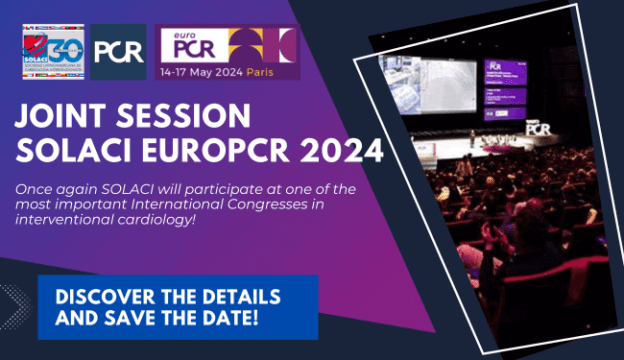Atrial fibrillation (AF) and fast heart rate (>70 lpm) have been shown to increase the risk of mitral valve repair surgery. The MitraClip has shown benefits in high risk patients, but its relation to abnormal heart rhythm has not yet been established.
760 patients were analyzed; 315 (52.4%) presented sinus rhythm (SR) and 286 (47.6%) atrial fibrillation. In the SR group, 365 patients (46.8%) presented a ≤70 lpm heart rate, and 404 (53.2%), a >70 lpm heart rate.
AF patients were older, had mild ventricular deterioration, and larger left auricular diameter. On the other hand, SR patients more often presented a history of MI, diabetes, (especially those with <70 heart rate), severe left ventricular function deterioration and increased end-diastolic volume.
Procedural success was 97.5%, with no significant differences between subgroups as regards:
- procedural time
- fluoroscopy
- number of clips implanted
- intra-procedural complications
There were no differences as regards in hospital stay, though SR patients presenting <70 lpm heart rate saw a shorter stay.
At 30 days, there were no differences in mortality (SR 3%, AF 5.8%, SR≤70 4.3% and SR>70 4.5%). The only mortality predictor was a >2 mg/dl creatinine value. Functional class saw sustained improvement across all subgroups.
Conclusion
These registry data (comparing a large “real world” unselected series of patients with mitral regurgitation receiving MitraClip) suggest that this intervention is safe and effective and that it reduces mitral regurgitation in most patients, regardless of baseline sinus rhythm or heart rate. While at 12 months survival rate was higher for those in SR, MACE and clinical improvement was no different between the groups.
Editorial Comment
This analysis of the German registry shows the MitraClip has benefits for high risk patients regardless of sinus rhythm or heart rate, as opposed to mitral valve surgery.
It is important to intervene before kidney failure, since this has a negative impact on results.
We need to evaluate these outcomes against those of larger studies.
Courtesy of Dr. Carlos Fava. Favaloro Foundation, Buenos Aires, Argentina.
Original Title: Effects of atrial fibrillation and heart rateo in percutaneous mitral valve repair with MitraClip: results from the TRAnscatheter Mitral valve Intervention (TRAMI) registry.
Reference: Alexnader Jabs et al. EuroIntervention 2017;12:1697-1705.
Subscribe to our weekly newsletter
Get the latest scientific articles on interventional cardiology
We are interested in your opinion. Please, leave your comments, thoughts, questions, etc., below. They will be most welcome.






